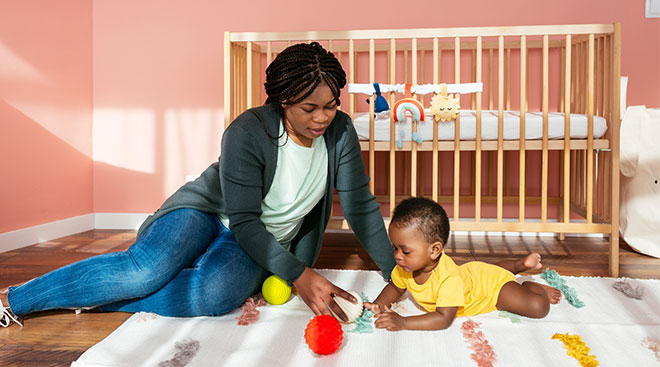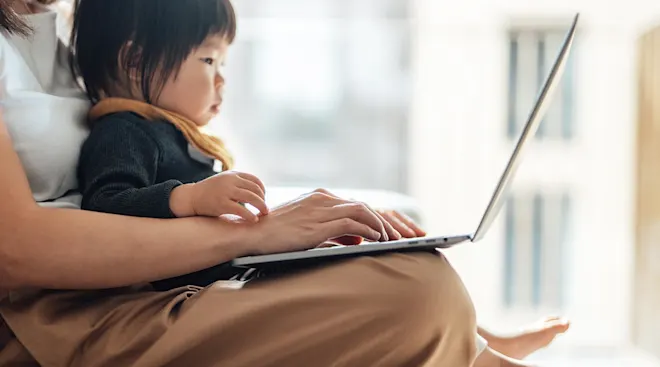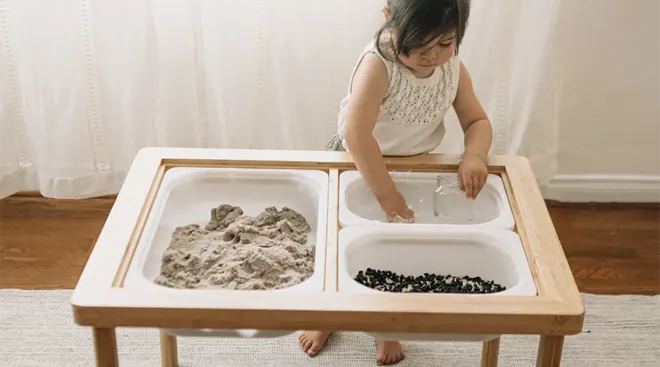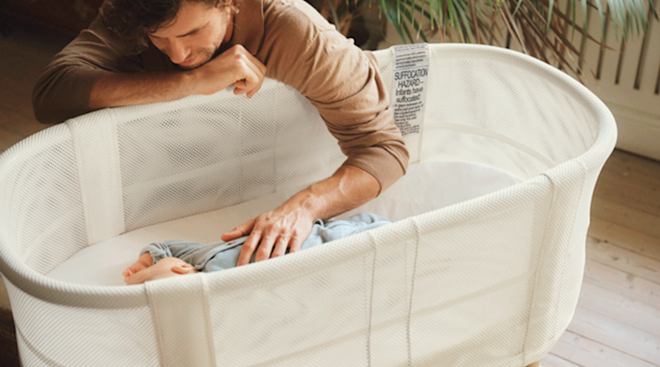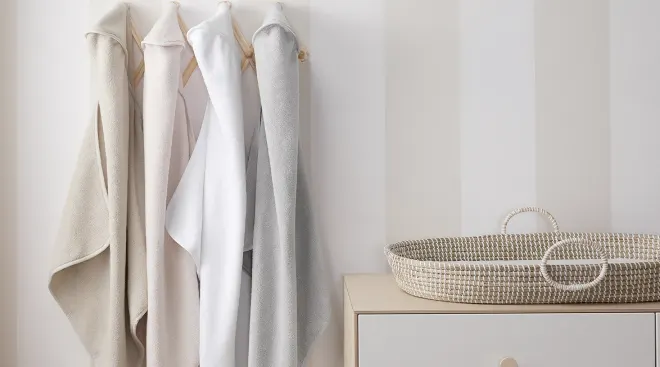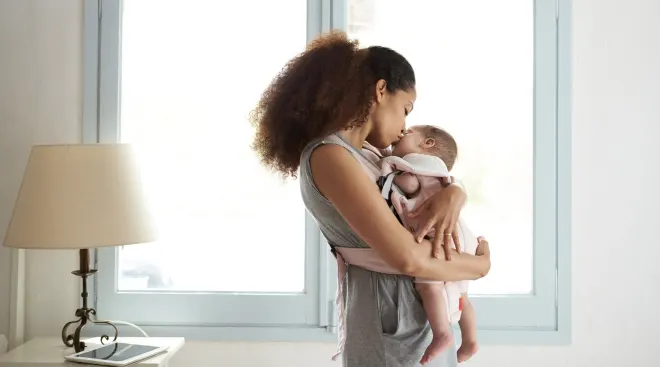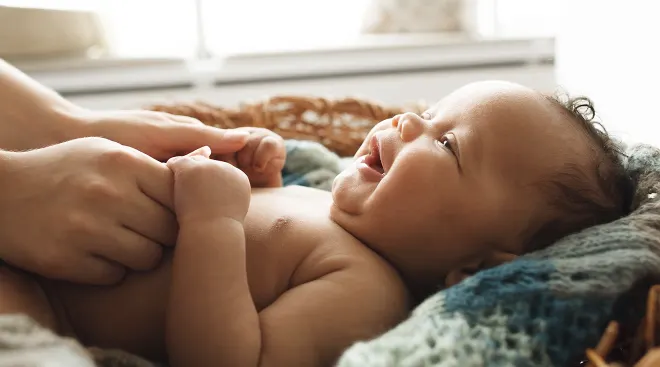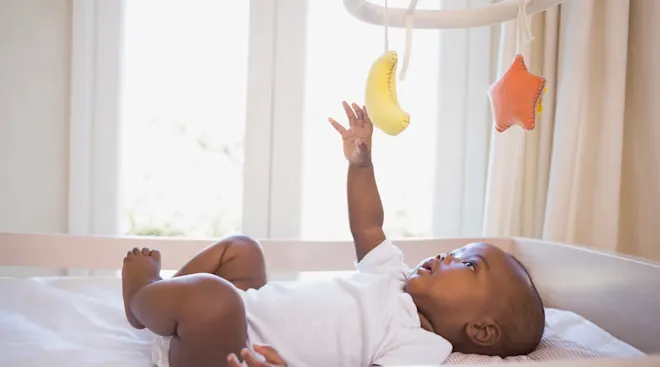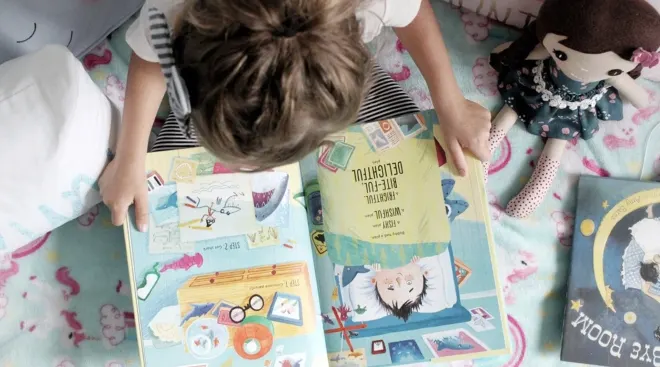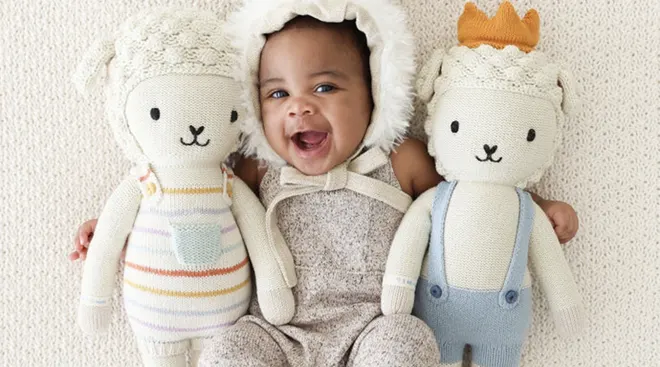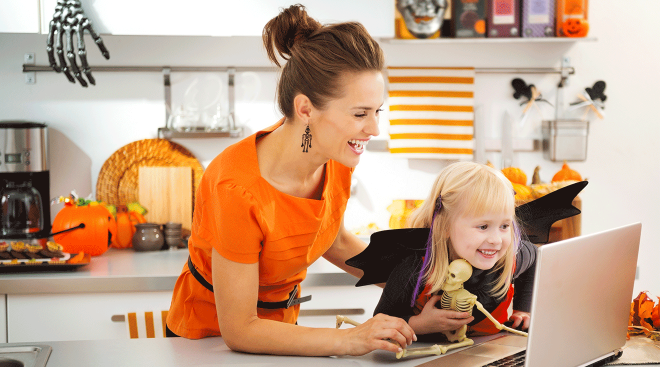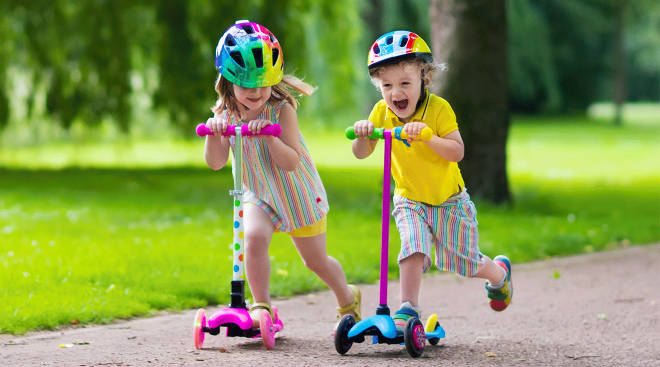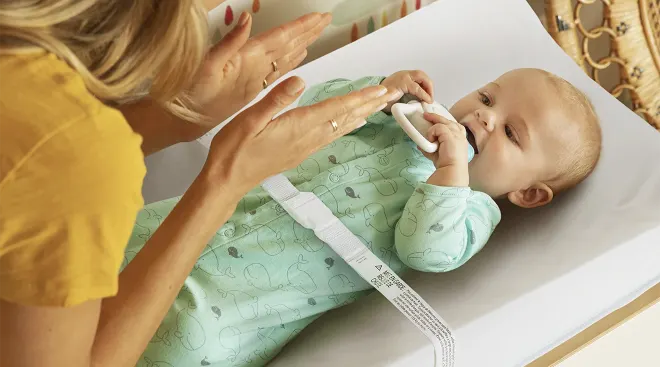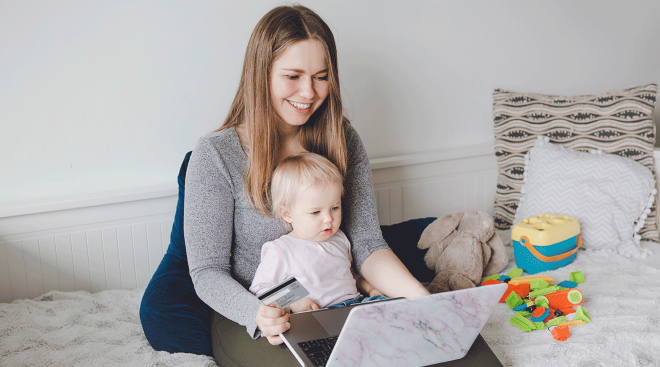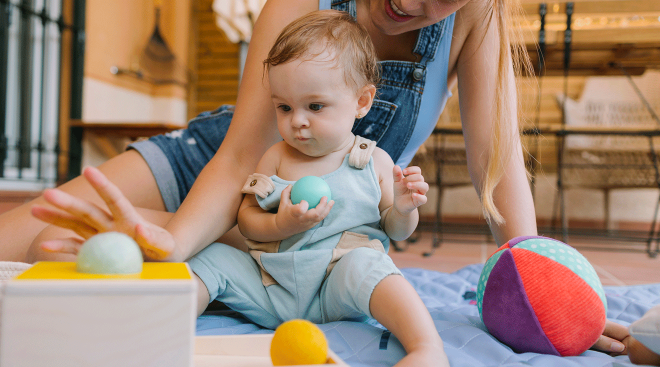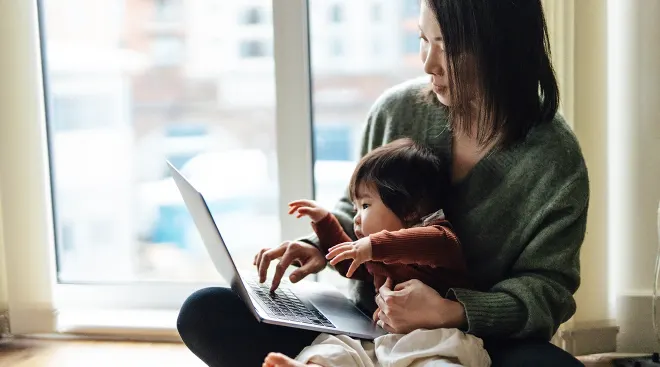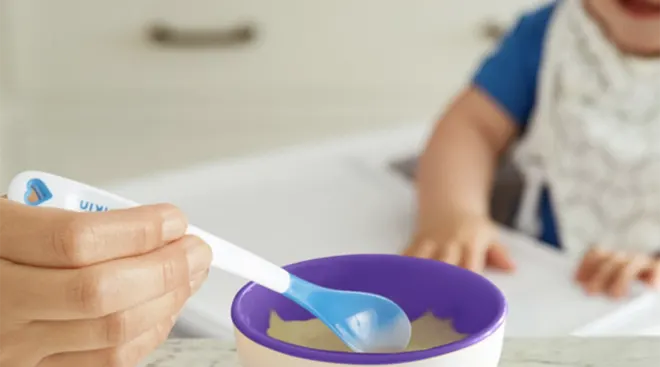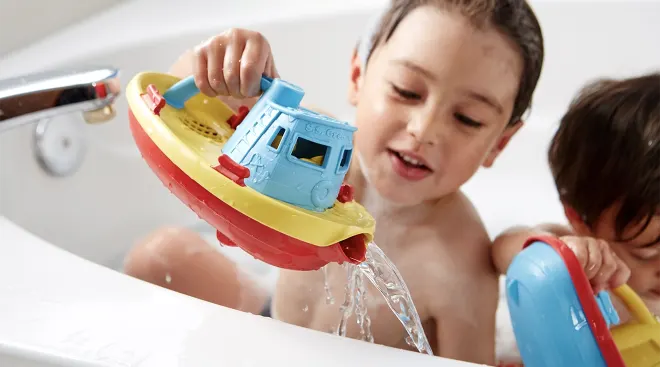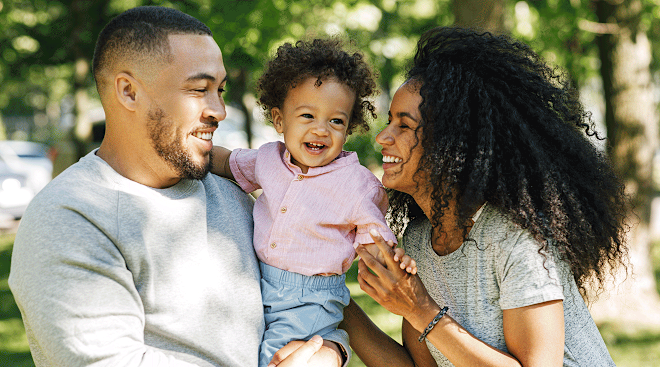The Dos and Don’ts of Shopping for Used Baby Gear
One thing’s for sure, babies need a ton of stuff. From big-ticket items like strollers to everyday baby essentials the list of must-haves can feel endless—and expensive.
Renting, borrowing or buying used baby gear can be a good alternative for parents browsing on a budget. Many families sell gear their baby has outgrown, meaning there’s plenty of stuff up for grabs at bargain prices (if you know where to look!). Eager to save some cash, but don’t want to compromise on quality? You’re in luck—many retailers list open-box and gently used items on their sites. “Open-box gear is almost like new, the box has just been opened. Think: A parent opened their new stroller, didn’t like the color, and returned it before ever using it, says Kristin Langenfeld, the CEO and co-founder of Good Buy Gear. Gently used gear has been previously loved and may show signs of general wear and tear, but is still in perfect working order. Another benefit of shopping second-hand? It reduces carbon emissions and puts money back into the pockets of parents—win-win.
But, before you give away your whole house (or fill it up with someone else’s stuff!), it’s important to note that some used items can pose safety risks to babies and young children. For one thing, “safety standards change on a regular basis so some items may not comply with newer regulations,” says Lauren Crosby, MD, a pediatrician at La Peer Pediatrics in Beverly Hills, California. Despite the risks, many parents seek out easily accessible, high-quality second-hand baby gear. Luckily, many online marketplaces and “recommerce” sites have emerged to meet this growing demand. Here, you’ll find the best places to buy and sell baby gear online—plus, safety tips and a list of items you should always buy new.
If you can’t resist a bargain, you might be tempted to buy all of baby’s essentials second-hand. But there are some baby products that should definitely be purchased new. “Parents should be careful with high chairs, bouncy seats, swings and play yards, as they are often the subject of recalls,” says Crosby. You should always buy these three items new:
• Car seats. A car seat is an essential piece of gear for new parents; they can be expensive, but this is one item that should be bought new. In order to comply with stringent crash safety standards, all car seats have expiration dates listed in their manuals (in general, they expire within six years, but it may depend on the manufacturer). To that end, purchasing a car seat without a manual is a major no-no. According to the American Academy of Pediatrics (AAP), parents shouldn’t use a car seat if they don’t know its history. “A car seat may appear to be in good shape, but there is a chance it may have been in a car accident so its safety may have been compromised,” says Crosby. If you do opt for a used car seat, Crosby advises researching the expiration date, checking for potential CPSC recall notices and only purchasing one from someone you know and trust.
• Cribs, cradles and bassinets. Crib safety standards are constantly changing, so it’s best to buy one new. In June 2011, the Consumer Product Safety Commission (CPSC) adopted a slew of new safety requirements and banned the sale of drop-side rail models (so do not buy this type of crib second-hand or new). The AAP also advises against purchasing antique cribs. “Antique cribs may be appealing but they don’t conform to current safety standards, and may even be finished with lead paint,” says Crosby. Crib slats should be spaced no more than 2 3/8 inches apart, the crib sides should be at least 26 inches above the mattress support in its lowest position, there should be no drop-down rails and headboards and footboards should be solid without decorative cutouts, explains Crosby.
• Crib mattresses. A mattress of any kind should always be bought new. “A crib mattress could be worn, meaning it won’t provide proper firmness. Plus, it could be dirty and there is no good way to clean a mattress,” says Crosby.
Wondering what products are safe to buy second-hand? You can buy most baby gear, “as long as it goes through a proper quality and safety inspection,” says Langenfeld. Here are three types of gear that are generally considered safe to buy and sell used:
• Strollers. Strollers don’t have expiration dates, meaning they are typically safe to buy used. However, it’s important to inspect secondhand strollers thoroughly and always check to see if that particular model has been recalled. Make sure its wheels and brakes are working properly, the seat reclines and that all of the straps are functional.
• Baby clothes. It’s okay to buy used baby clothes, but make sure they are clean, and check for choking hazards like drawstrings or decorations that could come off.
• Toys. Toys that are in good condition and are easy to clean can be bought secondhand. However, Crosby advises against buying toys with batteries that are easily accessible to children, as battery ingestion can be life threatening.
There are certain safety considerations you should be aware of when purchasing baby products that have been resold. Regardless of the product, “always look for signs or wear and tear [and] choking and strangulation hazards, and only use baby gear as directed per the product instruction manual,” says Crosby. Read on to discover more important safety tips.
• Check recall notices. A product recall occurs when an item has a manufacturing defect or poses a safety risk to the user. Before you make a purchase, check to see if the model has been recalled on the CPSC website or at Recalls.gov.
• Purchase used baby gear from a trusted supplier. Local markets and online auctions can be a good place for seasoned thrifters to source second-hand products. But when it comes to baby gear, Langenfeld advises parents to buy from a trusted friend or third party: “That way, you know you’re purchasing from a reliable source, and can ditch the back-and-forth messaging and meet-ups with strangers.”
• Inspect the product for safety hazards. If you are shopping in-person, inspect items thoroughly. Keep an eye out for the following safety hazards: Peeling paint or rough edges on furniture, gear or toys with loose parts, plastic products that are cracked or damaged and garments with frayed or threadbare material. If you’re shopping online, make sure the product images are high-quality so you can get a sense of overall condition.
• Check for missing parts. Avoid items with missing parts as they may not function properly and replacement parts could end up costing you more in the long run.
• Clean products before use. Many used baby gear sites inspect and sanitize each product before posting it for resale, but some don’t—so it’s important to clean items before use. Some products have specific cleaning requirements, but, in general, you can use soapy water, a cleaning spray or an anti-bacterial wipe to sanitize an object with a hard-surface.
• Wash soft furnishings and clothing before use. Put secondhand clothing, cloth diapers, fabric baby wraps or any other soft furnishings in the washing machine as soon as you bring them home.
Ready to start your search? Here are six of the best places to find used and open-box baby gear online. From dedicated “recommerce” websites to online marketplaces, these destinations offer tons of options for savvy shoppers.
Good Buy Gear is a powerhouse in the world of recommerce. The online marketplace allows users to buy and sell top-quality open-box and gently used gear for babies, toddlers and kids. Launched in 2016, the female-owned company prioritizes safety at the heart of its operations. The site features top-rated brands like UPPAbaby, BabyBjorn and 4moms. Each piece of gear undergoes a comprehensive safety and quality assessment by a team of gear experts, who also check for missing parts, imperfections and cleanliness. If a product isn’t up to scratch, it won’t be accepted for sale, meaning parents can shop with complete confidence. Plus, each item listed on their site is cleaned using eco-friendly, child-safe products. Want to declutter your home and earn some extra cash? Good Buy Gear will collect used gear from your home and sell it for you—stress free! Commission rates are based on a sliding scale, meaning sellers keep up to 80 percent of earnings from high-end items. Bonus: Nationwide shipping is available for most items, and the company has a 14-day return policy.
Shop: GoodBuyGear.com
Next up is eBay, the original online marketplace loved by bargain hunters and thrifters alike. The site has a section dedicated to baby gear, and handy filters help you search by brand, condition, price and age. Shoppers can use the “buy now” button to purchase items with one click, or make an auction bid for the chance to score a major bargain. Listing an item for sale is super-easy, thanks to the eBay app. Simply snap some photos and write a title and product description, and you’re good to go. One major bonus is that eBay takes less than 10 percent in commission fees per sale. However, unlike many other sites selling used baby gear, eBay does not assess the quality of the items listed, so be sure to read the product descriptions carefully.
Shop: eBay.com
Update your child’s wardrobe on a budget with thredUP. The online consignment and thrift store offers huge savings on second-hand kids’ clothing. The site has high-quality standards, so items are only listed if they have no visible signs of wear and tear. Clothing is categorized by age and gender, making it easy to find the perfect outfit for your little one. Ready for a wardrobe revamp? Order a free clean-up kit, fill it and mail it back using the enclosed shipping label. When your items are sold you can cash out or get a shopping credit. Studies show that buying a used garment reduces its carbon footprint by a whopping 82 percent—so it’s an eco-friendly option to boot. The commission fees range from 20 to 95 percent of the sale price.
Shop: thredUP.com
Searching for used baby gear in your local area? Check out Weepea. The online resale community helps parents connect to buy and sell baby gear and kids’ furniture. Shoppers can filter the site by location to find items for sale nearby, pay online via credit card or Apple Pay and then collect their purchase directly from the seller. The process is equally straightforward for sellers: Simply fill out a form to list an item for free, and Weepea will connect you with a buyer from your local community. Once the transaction is complete, Weepea takes a 20 percent commission from the sale.
Shop: Weepea.com
Facebook Marketplace is another great place to source used baby gear in your local area. It’s an online destination where users can buy, sell and trade items. There’s even an entire section devoted to baby and kids’ items, which you can filter by location, condition and price. Bonus: Anyone with an active Facebook account can list or buy items with no hidden fees.
Shop: Facebook Marketplace
About the experts:
Lauren Crosby, MD, FAAP is a board-certified pediatrician with La Peer Pediatrics in Beverly Hills, California. She is also a member of and spokesperson for the American Academy of Pediatrics. Crosby earned her medical degree from UCLA School of Medicine in Los Angeles, California.
Kristin Langenfeld, is the CEO and co-founder of Good Buy Gear. She holds an electrical engineering degree from the University of Waterloo and has over 15 years of experience leading, building and launching worldwide products in mobile and tech start-ups.
Please note: The Bump and the materials and information it contains are not intended to, and do not constitute, medical or other health advice or diagnosis and should not be used as such. You should always consult with a qualified physician or health professional about your specific circumstances.
Plus, more from The Bump:
Navigate forward to interact with the calendar and select a date. Press the question mark key to get the keyboard shortcuts for changing dates.

































